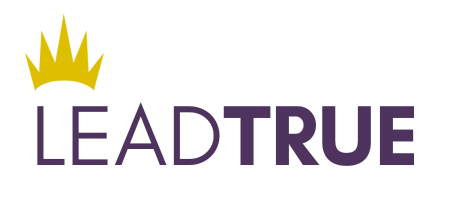Critical Thinking – A Big Gap for Millennials and a Big Win for Teams That Get It Right
by Becky Thomas
In the past, we’ve discussed how to navigate this new environment while leveraging differences and building bridges between each generation. It's useful to look for common ground among each group, but understanding individual needs is also important. For Millennials, having a better understanding of what's expected of them combined with developing critical thinking skills is key to reducing this gap.
The latest study commissioned by MindEdge and conducted by Research Now shows that about only half of Millennials feel like they have strong critical thinking skills. And when you think about it, it makes total sense.
When I was young and I wanted to go to a new restaurant I had to do a few things.
1. Get out the phone book (insert Joey Lawrence “woah” here)
2. Look up the restaurant and address
3. Flip to the maps page and find it on the coordinates or ask my dad to draw me a map
4. Pay attention to the signs and what was around me so I could remember the way next time
5. Ask friends one by one by picking up the phone and calling them to see if they wanted to go and if they heard anything about the restaurant
Today it’s about as quick as: Find on yelp, set phone in car, send mass text (more or less). There is this instant gratification thing going on that Millennials have grown up with all their lives, and the fast track removes a lot of the basic critical thinking skills that were developed on an everyday basis before technology.
If you belong to any of the prior generations (Traditionalists, Baby Boomers and Generation X), most likely, you instinctively know how to think critically because of both your age and experience, and because you didn’t grow up with a search engine at your fingertips. What I find is that often it’s hard to actually teach some of those innate critical skills to someone else.
What’s a quick and easy way to train your team on critical thinking? It’s no different than any other approach to leadership. True leadership is about setting the expectation, giving them the tools they need to do their job, and then letting them do their job.
Setting the Expectation
Set the stage for what you expect to come out of your direct reports and new hires. Describe what you expect in terms of their level of thinking.
A critical thinker is someone who:
Raises vital questions and problems, formulating them clearly and precisely
Gathers and assesses relevant information, using abstract ideas to interpret it effectively
Comes to well-reasoned conclusions and solutions, testing them against relevant criteria and standards.
Communicates effectively with others in figuring out solutions to complex problems without being unduly influenced by others’ thinking on the topic.
Provide the Tools Needed to Get the Job Done
Next, look at teaching them how to fish, so to speak. The work of William Glasser, M.D., provides further insight into nurturing the critical thinking process using specific types of questions.
Want, Do, Evaluate, Plan
Before someone on your team has a project or big question have them ask themselves, “What do I want to know?” Then have them answer the four questions above before they come to you for coaching on the situation.
1. What do you want to do?
2. What do you know now?
3. Is the way you are processing the information or belief accurate (evaluate)?
4. What will you do with this knowledge (plan)?
This approach to developing critical thinking on your team will surely start the wheels turning and you’ll see some impressive outcomes as a result.

